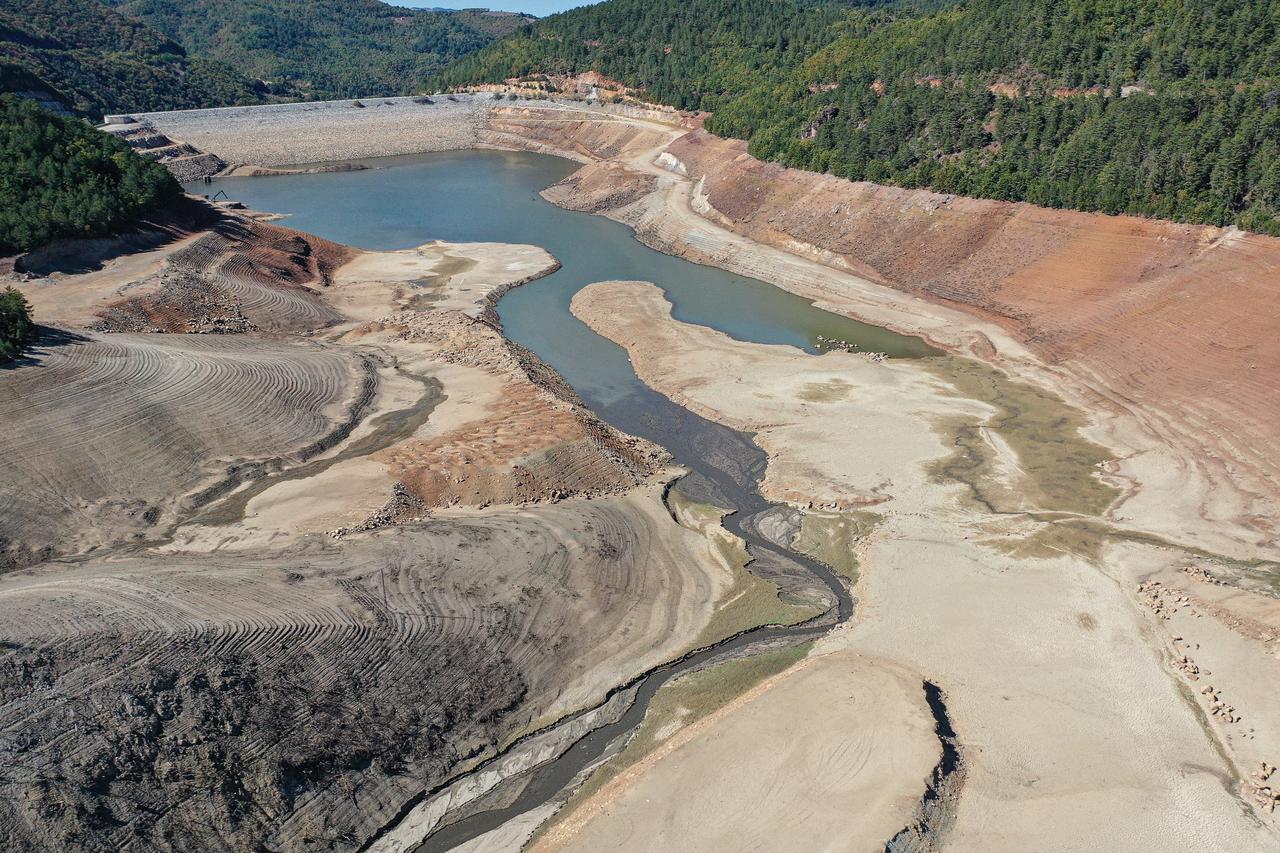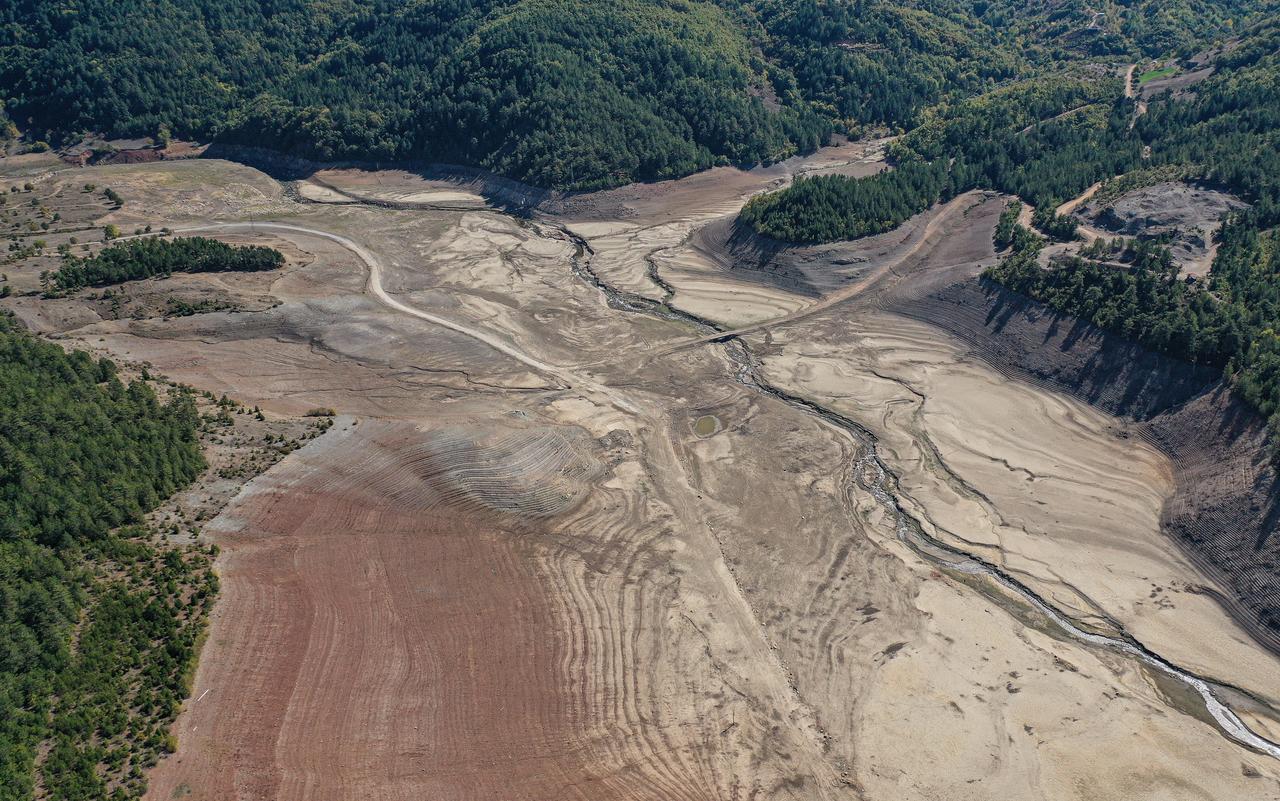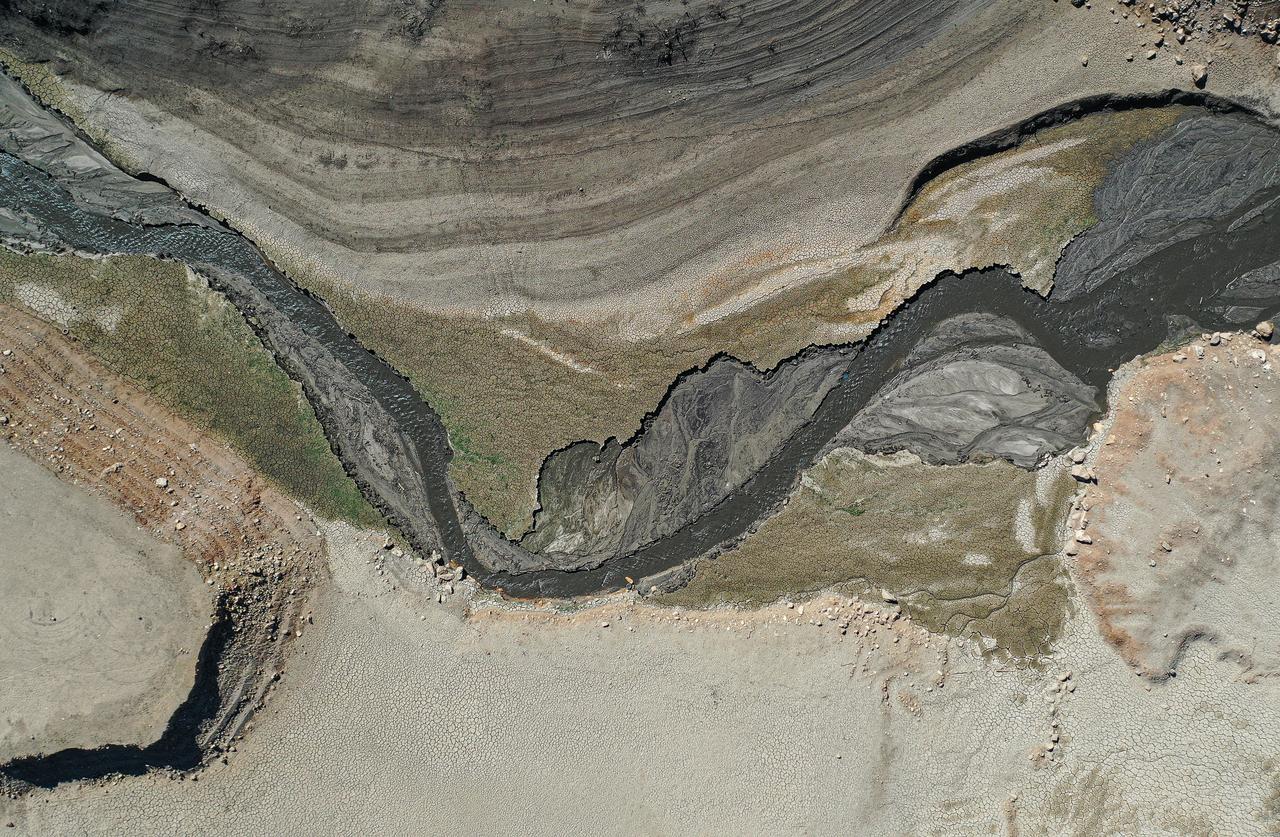
Bursa, historically known as the "City of Water," is experiencing a critical water shortage as its main reservoirs approach empty levels due to prolonged drought.
The city’s primary water sources, Doganci and Nilufer reservoirs, have seen a drastic drop in water levels, leaving authorities with no choice but to implement 12-hour water cuts across several districts.
As of Oct. 5, the combined water level of Doganci and Nilufer reservoirs has fallen to a dangerously low 0.54%, down from 5.08% on Sept. 21.
Nilufer Reservoir, which has a capacity of 60 million cubic meters, has completely dried up, while Doganci Reservoir, with 43 million cubic meters of capacity, is also nearing depletion.
Bursa’s daily water consumption of approximately 525,000 cubic meters far exceeds what the remaining water in these reservoirs can supply, raising concerns about the sustainability of water distribution in the coming days.

To manage the crisis, Bursa Water and Sewerage Administration (BUSKI) has introduced scheduled 12-hour water cuts in districts including Osmangazi, Yildirim, Nilufer, Mudanya, Gursu and Kestel.
Authorities emphasize that these measures are temporary, designed to balance water availability and prevent a complete shutdown of the city’s water supply.
Critical facilities, such as hospitals and universities, have been exempted from the cuts to ensure uninterrupted access to water for essential services.

The General Directorate of Meteorology has forecasted heavy rainfall and thunderstorms starting from the night of Oct. 7, which could last throughout the week.
If the precipitation is substantial, it may help refill the depleted reservoirs and partially alleviate the water shortage.
The drought has also revealed another worrying consequence: the exposed reservoir floors have brought to light decades of accumulated waste.
Plastic bottles, tin cans, bags, vehicle tires, and other debris that were submerged are now visible, posing both environmental hazards and potential risks to water quality.
Experts warn that without urgent action, the contamination could affect drinking water safety and further complicate water management.
This crisis in Bursa is part of a wider pattern affecting other parts of Türkiye as well.
Similar declines in water levels have been observed in Istanbul, where the city’s reservoirs are at their lowest in the past 10 years.
In Istanbul, the Omerli Reservoir is at 18% capacity, Alibey at 15%, and Kazandere at only 1%, while the highest level is in Elmali at 50%.
Thrace region reservoirs have also dropped to an average of 26% capacity, with Kirklareli recording the lowest levels in the area.